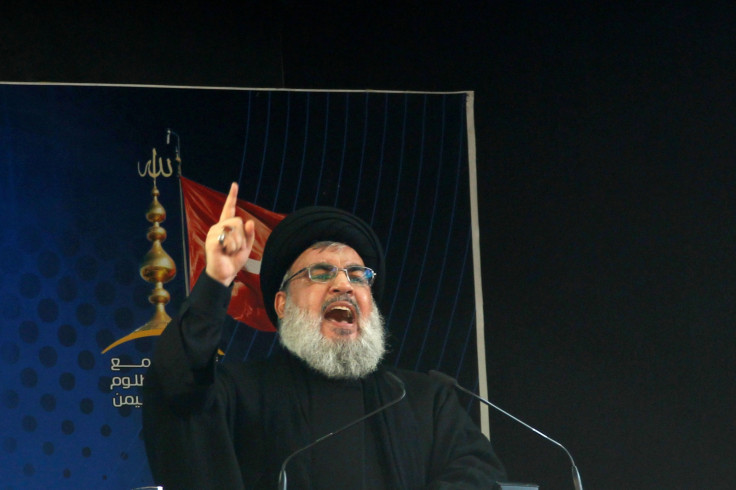Hezbollah threatens next conflict with Israel could take place inside Israeli territory
The militant group's chief claims Hezbollah's members and rockets are capable of penetrating Israel.
Lebanese militant group Hezbollah's chief, Sayyed Hassan Nasrallah, on Thursday (11 May) said the outfit's next conflict with Israel might take place inside Israeli territory. The chief of the Shia Islamist organisation also said that both Hezbollah's members and weapons could penetrate Israel if the group wants such a situation.
Nasrallah made a televised speech on Thursday to mark the one-year anniversary of the killing of Hezbollah commander, Mustafa Badreddine. His assassination, which occurred near Damascus airport, was attributed to Israel. However, Tel Aviv denied the charges.
Nasrallah said that Israel had been threatening for 10 years to open a front against Hezbollah, but it had not done anything as it was afraid of any confrontation because it could take place within its territory.
"Hezbollah soldiers and rockets can reach all the positions across the Zionist entity during any upcoming war," he added.
Israel is concerned that Hezbollah – a traditional arch-rival with which the country fought a war in 2006 – may have gained significant experience from participating in the Syrian conflict. Hezbollah, often seen as a long arm of Iran, has sent its fighters to Syria in support of Syrian President Bashar al-Assad stepping up its involvement in recent years.

Though this is not the first time Nasrallah has threatened to invade the country, Israeli authorities are said to be recognising the extremist organisation as a significant threat. The Israel Defence Forces (IDF) no longer considers Hezbollah as a guerrilla organisation and this was also evident in increasing Israeli air strikes against Hezbollah interests inside Syria.
Nasrallah added that he was pulling back his troops from the border region with Syria leaving the control to the Lebanese army. "Along the eastern Lebanese border there is no longer a need for our presence, so now we have dismantled and will dismantle [our] remaining military positions. The mission has been accomplished... from now on [this area is] the responsibility of the state," he said.
© Copyright IBTimes 2025. All rights reserved.






















